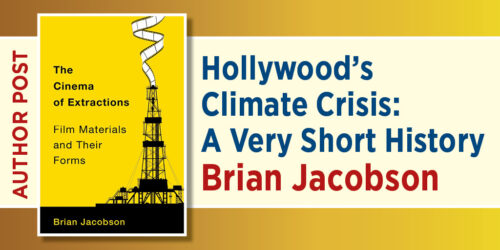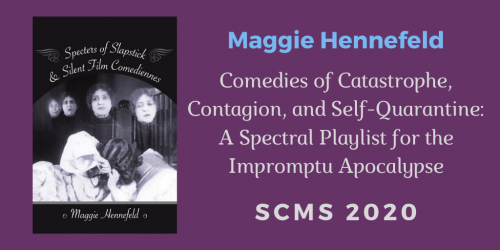The Coen Brothers as Indie Auteurs
In his chapter “Pastiche as Play,” Michael Z. Newman, author of Indie: An American Film Culture focuses on the Coen brothers and how their work represents a certain strain of indie filmmaking. In particular, their use of pastiche, drawing on other genres, and playfulness have not only come to define their own work but also cement an indie audience. Here is an excerpt from the chapter and above is a clip from Blood Simple, a movie which self-consciously draws upon earlier noir films. (For Newman’s discussion of Lost in Translation)
Making a game of genre and influences, playing with the audience’s expectations about form and meaning, are central appeals of Blood Simple, and in their various ways of all of the Coens’ films since. This point matches formal play with another key element of indie culture’s viewing strategies: authorship as means of focusing textual meanings across many films that constitute an oeuvre. As a culture more focused on “personal” filmmaking than Hollywood and always seeking aesthetic distinction in relation to it, indie cinema relies considerably on auteur readings and on the categorization of films by artist, often parallel with or even ahead of genre or star. Indie filmmakers, more than many Hollywood counterparts, are expected to maintain a vision that is prioritized ahead of commercial considerations, and to cultivate a personal style across a body of work which helps to distinguish itself against mainstream film culture. Their emergence in the 1980s, part of an original wave of indies in the Sundance-Miramax era, established them as influential models, and while their auteur identity by the late 2000s might seem less central to indie culture than other directors, their historical role bespeaks their centrality to conceptions of indie culture. The Coens are offered here not only as paradigmatic pasticheurs, but also as exemplars of auteurist practice in indie cinema. The central thematic of their auteur identities, I argue, is playfulness. For instance, Jonathan Romney, writing about The Big Lebowski in Sight and Sound, described the Coen brothers as “the most purely ludic of contemporary American filmmakers.”
This ludic appeal has been most important in critical appraisals of the Coens and in their canonization as indie and as postmodernist auteurs. According to this mode of reception, the Coen brothers’ films are movies about movies and narratives about narratives and pop culture about pop culture. They seem sometimes to refer to nothing much outside of themselves and the reference points they flauntingly copy; they do not seem concerned to engage with social issues in any thoughtful way (Joel and Ethan Coen never leave the impression that they think movies have any relevance to the social or political in their appearances in the press). This is not to deny that one might interpret their films thematically, as many have done, but only to assert that a central appeal of their films is precisely their interest in form as form rather than as vehicle for deeper meaning. To those who take these characterizations to be failings, the Coens’ films are works of formalist self-gratification, art for art’s sake, technically adept but ultimately of little lasting value, a lot of sizzle but not much bacon. To many admirers of their work, however, the Coen brothers are masters of a certain mode of contemporary filmmaking that is at once highly referential but also idiosyncratically individualistic: their work, like Tarantino’s, is based at the same time on an advertised debt to an eclectic hodgepodge of sources and on the creation of a universe where people talk and act in a way that exists only in their movies, in Coen Country or Quentinland. As with many of the most acclaimed independent film directors in the post-1970s era, form is given special emphasis and weight in the Coens’ movies. Barry Sonnenfeld, who shot the Coens’ first few films, confirmed as much when he told an interviewer that theme is “incredibly unimportant to them” and that they are more interested in “structure and style and words.”
2 Responses
Leave a Reply
You must be logged in to post a comment.





great stuff.. thanks!